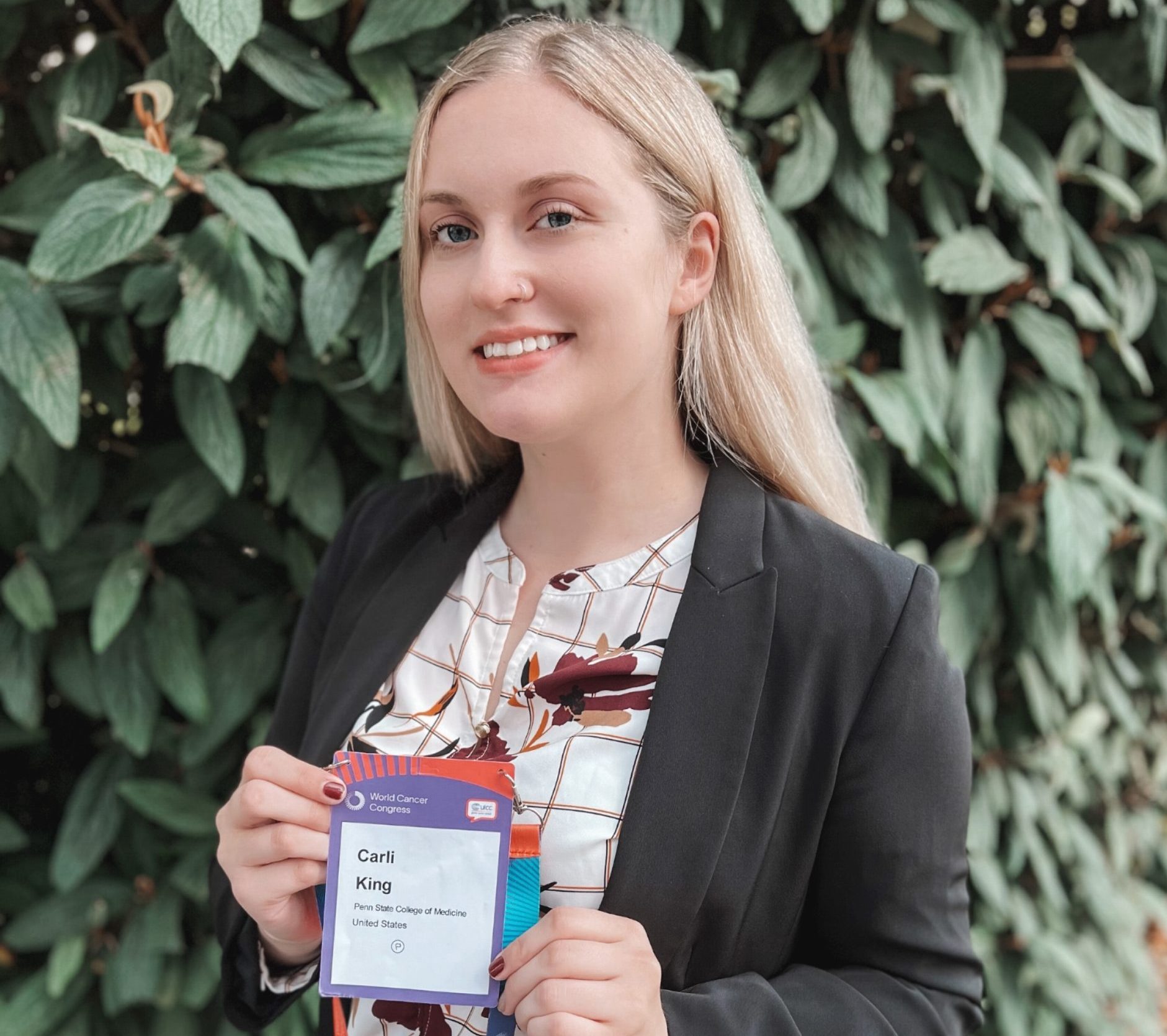Biomedical Sciences PhD student shares key takeaways from attending World Cancer Congress

Congratulations to Carli King, a fourth-year graduate student enrolled in the Biomedical Sciences PhD program, on receiving Penn State College of Medicine’s Mark J. Young International Health Policy Scholarship. With this award, she was able to attend the World Cancer Congress (WCC) in Geneva, Switzerland, recently.
Hosted by the Union for International Cancer Control, the WCC aims to strengthen regional, national and international cancer initiatives through a multidisciplinary program that features the latest in cancer prevention, diagnosis, treatment and care.
As a first-time attendee, King wanted to use the opportunity to learn more about cancer as a global health burden and determine how she could incorporate this information into her research and career. She is part of the lab of Gregory Yochum, PhD, Penn State Cancer Institute Researcher and associate professor of biochemistry and molecular biology and of surgery. Her research focuses on the Wnt/β-catenin signaling pathway, a commonly mutated pathway in colorectal cancers (CRCs). King studies TCF7L1, a transcription factor in the Wnt/β-catenin signaling pathway, and its role in CRC. By elucidating its role and direct targets, she and other researchers in Yochum’s lab hope to identify novel avenues for therapeutic benefit.
King said one of her main goals attending the World Cancer Congress was to understand the relationship between basic science research and health policy, and how the two can influence one another.
“I believe attending the WCC highlighted the importance of having a multifaceted view of cancer, from the molecular level to the global health level, and how an interdisciplinary approach can be used to identify global health concerns and advocate for appropriate legislation and policy reform,” said King, who is part of Penn State Cancer Institute’s Cancer Research Training and Education Coordination Core.
In regards to approaching the disease, she said she gained important insight from attending the WCC. The conference allowed her to see that countries tackle cancer policies, prevention and screening differently. During the conference, King was able to learn about how countries addressed and helped underserved communities, and she had the opportunity to analyze pilot programs for lung and cervical cancer screening programs.
If you're having trouble accessing this content, or would like it in another format, please email the Penn State College of Medicine web department.
